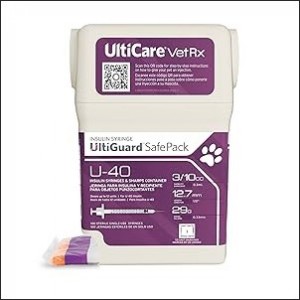Dietary dog supplements
by Jenny Alonge
Unlike humans, dogs typically eat a consistent diet, and most commercial dog foods are precisely formulated to meet all the nutritional requirements dogs need to thrive. In addition, some dog food manufacturers create diets based on the dog’s life stage and breed. Puppies and senior dogs’ dietary requirements differ from adult dogs, and small-breed dogs have different requirements than large- and giant-breed dogs. Although dietary dog supplements are increasingly popular, adding a multi-vitamin or mineral supplement to a dog’s complete and balanced diet can be dangerous. However, research has demonstrated that some supplements are efficacious for certain conditions. Continue reading to learn about the supplements that can benefit your patients.
Joint supplements for dogs
Arthritis is a common problem that affects approximately 25% of dogs. Certain joint supplements may help relieve arthritis pain and improve mobility, including:
- Glucosamine hydrochloride — This amino sugar is a building block of the cartilage matrix and stimulates cartilage cell growth. While glucosamine sulfate is absorbed better, studies have demonstrated that glucosamine sulfate can’t be detected in synovial tissue after oral ingestion. Dogs given glucosamine hydrochloride typically show improvement in pain scores and weight bearing by day 70. Glucosamine hydrochloride must be administered at a loading dose of two times maintenance for four to six weeks to reach therapeutic levels.
- Chondroitin sulfate — This is the main glycosaminoglycan found in cartilage, and promotes water retention and elasticity, and helps ensure that the joint is adequately nourished and shock is absorbed. Chondroitin sulfate, which is often combined with glucosamine hydrochloride, inhibits the production of inflammatory mediators that harm the joint. Chondroitin requires a loading dose similar to glucosamine.
- Avocado soybean unsaponifiables (ASUs) — ASUs inhibit key osteoarthritis mediators to protect the cartilage matrix against damage and stimulate osteochondral healing, possibly by increasing transforming growth factor beta in the tissues. Studies have demonstrated that ASUs have similar efficacy to nonsteroidal anti-inflammatories, but their effects are delayed. ASUs can amplify glucosamine and chondroitin actions.
- Eggshell membranes — Eggshell membranes contain high concentrations of glucosamine, chondroitin, collagen, and hyaluronic acid. Several human studies have demonstrated that eggshell membranes are beneficial for treating osteoarthritis, and a 2016 study showed that dogs with suboptimal joint function experienced less joint pain and improved joint function when given eggshell membranes.
- Boswellia serrata — This tree extract has effects similar to NSAIDs. A 2004 study showed statistically significant reduction in osteoarthritis signs (i.e., lameness, pain, gait stiffness) after six weeks of treatment.
Fish oil supplements for dogs
Fish oil supplements contain omega-3 fatty acids, such as eicosapentaenoic acid (EPA) and docosahexaenoic acid (DHA), that have anti-inflammatory effects. Omega-6 fatty acids make up cell membranes, and during certain biochemical processes, they produce prostaglandins and leukotrienes, which promote inflammation. Fish oil supplementation causes incorporation of omega-3 fatty acids into the cell membrane, and they counteract these effects and produce non-inflammatory substances during these biochemical processes. Fish oil products are most commonly derived from wild caught, cold water fish, such as salmon, and have shown promise in helping to treat several conditions, including:
- Skin allergies — Fish oil supplements help reduce skin inflammation and reduce pruritus.
- Arthritis — Omega-3 fatty acids reduce pain, improve weight bearing, and reduce the need for NSAIDs in arthritic dogs.
- Kidney disease — Fish oil may help lower elevated blood pressure, decrease proteinuria, and reduce proinflammatory substances to help slow kidney disease progression.
- Heart disease — Numerous human studies demonstrate that omega-3 fatty acids are beneficial for cardiac disease prevention in people. Fish oil supplementation may positively affect dogs, including improved myocardial energy metabolism, endothelial function, heart rate, and blood pressure.
- Cancer — Fish oil slows down and possibly inhibits tumor growth by stimulating cancer cells to differentiate into specific cell types that limit their division and survival.
Probiotics for dogs
Probiotics are living microorganisms that benefit the host’s health when administered in adequate amounts. Potential action mechanisms include intestinal immune function modulation, epithelial homeostasis improvement, and neuroregulatory effects that may reduce sensitivity to stress. These products may also block pathogenic bacteria by changing the microenvironment and producing antibacterial substances to reduce their binding ability to the mucosa. Species-specific probiotics for dogs include Enterococcus faecium and Bacillus coagulans, and other strains used to treat dogs include Bifidobacterium animalis, Lactobacillus acidophilus and Lactobacillus rhamnosus. Probiotics are used to treat the following conditions in dogs:
- Acute diarrhea — Probiotics can be used to treat or prevent acute or stress-related diarrhea.
- Inflammatory bowel disease (IBD) — Probiotics have been shown to have similar effects as prednisone and metronidazole to treat IBD in dogs.
- Antibiotic treatment — Antibiotic treatment causes changes in the gut microbiota, and can result in significant gastrointestinal upset, but probiotics can support the commensal flora to help prevent this disruption.
- Atopic dermatitis — Probiotics have been shown to significantly decrease signs in atopic dogs.
Antioxidants for dogs
Antioxidants are compounds that protect against cellular damage from reactive oxygen species such as free radicals, single oxygen atoms, and hydrogen peroxide. Some well-known antioxidants, including ascorbic acid (i.e., Vitamin C), alpha-tocopherol (i.e., Vitamin E), beta-carotene, and coenzyme Q10, have demonstrated multiple benefits, including:
- Improved cardiac functional parameters in dogs with chronic valvular disease
- Decreased cataract formation when applied topically
- Increased immune response to vaccination in young dogs
- Increased cognition in aged beagles
- Increased immune response in healthy geriatric dogs
- Improved joint function and reduced pain in arthritic dogs
Used correctly, certain supplements can benefit dogs affected by numerous health complications, but more research is needed to determine accurate dosing for each supplement and condition.














List
Add
Please enter a comment